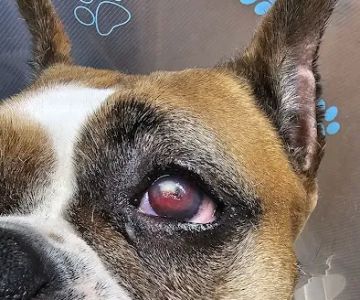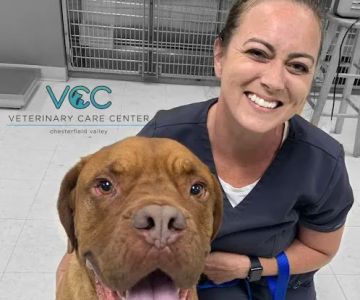Can You Be a Veterinarian With a Biology Degree?
As someone who has always loved animals and dreamed of working in veterinary medicine, I often find myself asked whether it’s possible to become a veterinarian with just a biology degree. It’s a common question, and one that many people ask when they’re considering their career options in the animal healthcare field. From my personal experience and the research I’ve done, I can confidently say that a biology degree can absolutely serve as a foundation for a career as a veterinarian. However, there are some important steps and considerations to keep in mind along the way.
1. Understanding the Role of a Veterinarian
Before diving into the specifics of the education required, it's essential to understand what being a veterinarian entails. Veterinarians play a crucial role in maintaining the health of animals, ranging from family pets to livestock and wildlife. They are trained to diagnose and treat illnesses, perform surgeries, and even provide preventative care. A veterinarian can specialize in various fields, including small animals, large animals, or even exotic species. While the role is rewarding, it is also demanding, requiring a significant level of education and hands-on experience.
1.1 Responsibilities and Challenges
In my journey to understanding the full scope of veterinary medicine, I learned that veterinarians must be ready to tackle both medical and emotional challenges. You’ll often have to deal with difficult cases, sometimes involving life-and-death decisions, which requires not only technical knowledge but also empathy and compassion. It’s a role that demands commitment, especially in a high-stakes environment. This is why formal veterinary training is so essential, even if you have a biology degree as a starting point.
2. The Role of a Biology Degree in Becoming a Veterinarian
A biology degree is an excellent starting point for those looking to pursue a career in veterinary medicine. During my own research, I found that most veterinary schools accept applicants who have a strong foundation in biology, as it provides the necessary understanding of life sciences. Many of the subjects covered in a biology degree, such as cellular biology, anatomy, and genetics, are critical in veterinary studies, making it a natural stepping stone to vet school.
2.1 Key Areas of Focus in a Biology Degree
When I took a closer look at the curriculum of a typical biology degree, I realized that many courses would directly benefit someone pursuing veterinary medicine. These include courses in animal biology, genetics, microbiology, and biochemistry, which are foundational to understanding animal health. As someone who has completed a biology program, I can attest that these subjects equip you with the scientific knowledge necessary to excel in veterinary studies.
2.2 The Advantages of a Biology Background
What I found particularly advantageous about a biology degree is the analytical and critical thinking skills that it nurtures. These skills are essential for veterinarians who must quickly assess situations and make well-informed decisions about treatment options. My biology background allowed me to approach problems from a scientific perspective, which helped me immensely when I transitioned into veterinary studies.
3. The Path from Biology Degree to Veterinary Medicine
While a biology degree provides a solid foundation, becoming a veterinarian requires additional education beyond a bachelor's degree. Most veterinary schools require applicants to complete a Doctor of Veterinary Medicine (DVM) program, which typically lasts four years. In my case, the transition from a biology degree to vet school was challenging but incredibly rewarding. I had to meet specific prerequisites, including clinical experience, before being accepted into the DVM program.
3.1 Gaining Practical Experience
During my time as a biology student, I learned that gaining hands-on experience with animals was crucial to preparing for veterinary school. I volunteered at local animal shelters, shadowed veterinarians, and worked as an animal care assistant. These experiences not only solidified my passion for working with animals but also helped me develop the practical skills needed to succeed in a veterinary program. If you're considering this path, I highly recommend seeking out similar opportunities to build your experience and strengthen your application to vet school.
3.2 Meeting the Prerequisites for Veterinary School
Another important aspect of transitioning from a biology degree to a veterinary career is meeting the prerequisites for veterinary school. While a biology degree covers much of the necessary content, there are specific courses and experiences required by vet schools. For example, veterinary programs typically require coursework in subjects like animal nutrition, physiology, and advanced animal behavior. Additionally, most schools look for applicants with strong academic records and a proven commitment to animal care, making the volunteer work I did essential in my own journey.
4. Applying to Veterinary School
Once you have completed the necessary coursework and gained the required experience, the next step is applying to veterinary schools. The application process is highly competitive, and many schools require candidates to submit a personal statement, letters of recommendation, and standardized test scores (such as the GRE or MCAT). I found that starting early, staying organized, and crafting a compelling application were key to my success. It’s important to research the specific requirements of each veterinary school, as they can vary depending on the institution.
4.1 The Importance of Networking and Recommendations
Throughout my application process, I realized how important networking and recommendations were. By connecting with veterinarians, professors, and mentors, I was able to gain invaluable insights into the profession and receive strong letters of recommendation. Building a network of professionals in the field is not only useful for gaining advice but also for securing opportunities to gain relevant experience, which can strengthen your application to vet school.
5. Conclusion: The Journey from Biology to Veterinary Medicine
In conclusion, becoming a veterinarian with a biology degree is entirely possible and often an ideal path for those passionate about animal health. While it requires additional steps, including gaining practical experience and attending veterinary school, the foundation provided by a biology degree offers a strong start. If you’re considering a veterinary career, I encourage you to take the time to gain the necessary experiences, research the requirements of veterinary programs, and stay committed to your passion for animal care. With perseverance, a biology degree can indeed be the first step toward a fulfilling career as a veterinarian.











